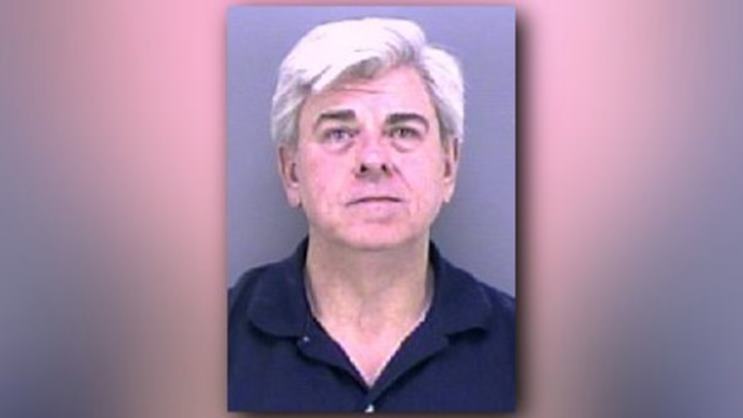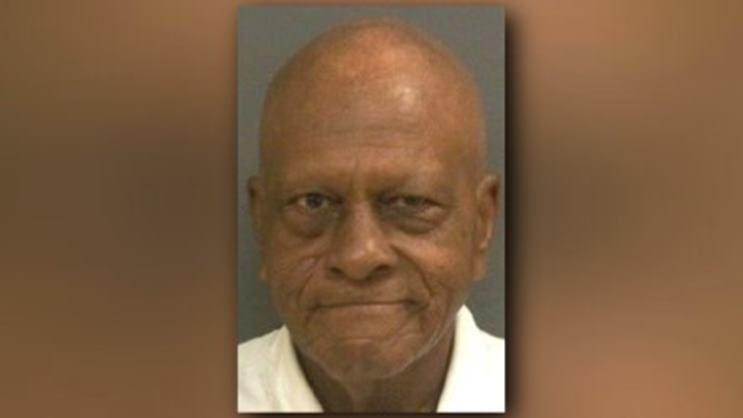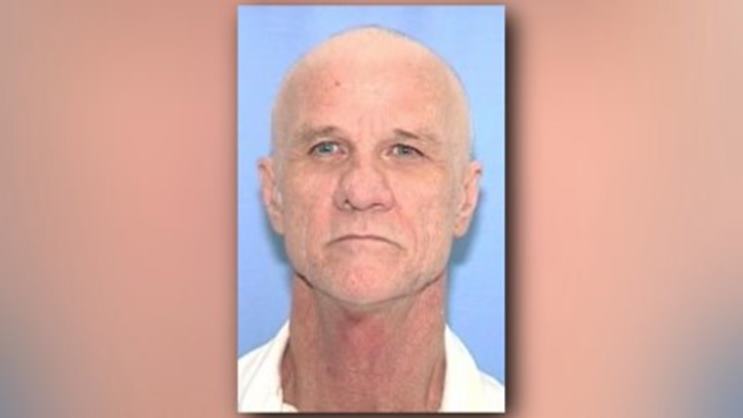|
Houston Chronicle identifies Southern Baptist Church staff, volunteers convicted of sex crimes
By Reagan Roy
On the heels of the Texas Catholic Conference of Bishops instructing all Catholic dioceses in the state to release a public list of clergy "credibly accused" of child sex crimes, the Houston Chronicle has published a nationwide report detailing Southern Baptist Convention church officials and volunteers who have been convicted of sex crimes. On the heels of the Texas Catholic Conference of Bishops instructing all Catholic dioceses in the state release a public list of clergy "credibly accused" of child sex crimes, the Houston Chronicle has published a nationwide report detailing Southern Baptist Convention (SBC) church officials and volunteers nationwide who have been convicted of sex crimes. According to the Houston Chronicle, the SBC is a network of more than 47,000 autonomous (having the right or power of self-government) Baptist churches and institutions that voluntarily cooperate with one another. In the Texas section, four ex-East Texas pastors were identified. Minson was arrested in August 2008 one count of indecency with a child. Police say he molested a 12-year-old female family member at a motel. The former pastor at First Baptist Church of Swan, just north of Tyler, pleaded guilty to the crime in 2009, and was sentenced to five years deferred adjudication, according to the Houston Chronicle. He was also ordered to have no contact with the victim and undergo counseling. Stallworth, a former pastor in Elkhart, is serving a 20-year sentence for aggravated assault of a child and indecency with a child for offenses in 2010 and in 1989, according to the Houston Chronicle. Court documents show his appeal was rejected by the Twelfth Court of Appeals in 2012. Moore Jr., a former Dogwood City pastor, was convicted of raping a 6-year-old girl during "nap time" at his daycare facility in July 2006. According to a 2008 article from the Tyler Morning Telegraph, while he was out on bond, Moore made several threats toward Tyler Paper reporters covering his case. Right after a jury returned a guilty verdict for Moore Jr., he attacked the prosecutor. He was sentenced to life in prison and was not eligible for parole until he had served 30 years of his sentence. However, Moore Jr. died in his prison cell at the McConnell Unit in May 2008. Laferney, a former youth pastor at Glenwood First Baptist Church in Gilmer, is serving a life sentence at the Clements Unit in Amarillo after pleading guilty to aggravated sexual assault of a child in 2008. As part of a plea deal, additional sex crimes charges were dismissed, according to the Houston Chronicle. Prior to his conviction, Lafferney jumped bail and attempted to fake is own death to avoid prosecution. He was arrested in Montana in 2007. The SBC released a response to the Houston Chronicle's report shortly after it was published on Sunday. It can be found in full below: A Houston newspaper, in reporting on instances of sexual abuse by pastors and others at Southern Baptist churches, has left SBC President J.D. Greear "broken over what was revealed today." Along with its 6,000-word report, the Chronicle released a database of 220 individuals who have been convicted of or pled guilty to sexual abuse crimes. The Chronicle said its investigation had revealed approximately 380 instances since 1998 -- including more than 250 since 2008 -- of "those who were convicted, credibly accused and successfully sued, and those who confessed or resigned." The crimes have left more than 700 victims, the newspaper stated. One of the victims died of a drug overdose 14 years after she was molested in 1994, the Chronicle reported, citing criminal and civil court records. The 14-year-old slit her wrists after the 1994 incident. Her mother blames the daughter's subsequent death on the trauma she suffered, the newspaper stated. Russell Moore, president of the SBC's Ethics & Religious Liberty Commission, wrote in similar fashion in a commentary after the report was published, "No church should be frustrated by the Houston Chronicle's reporting, but should thank God for it. The Judgment Seat of Christ will be far less reticent than a newspaper series to uncover what should never have been hidden." Moore referred to the Sexual Abuse Presidential Study initiated by Greear last year, which is "assigned with investigating all options and reviewing what other denominations and groups have done to keep track of abuses, while hearing from law enforcement, psychological and psychiatric experts, survivors, and many others." "Our approach is seeking to encourage policies and practices that protect children and the vulnerable from sexual abuse in autonomous but cooperating churches, all the while promoting compliance with laws and providing compassionate care for those who have survived trauma," Moore wrote. "True, we have no bishops. But we have a priesthood of believers. And a key task of that priesthood is maintaining the witness of Christ in the holiness and safety of his church. That means training churches to recognize sexual predation and how to deal with charges or suspicions when they emerge, and equipping churches to stop the pattern, in their church or from their church to others." Boto, in written comments to Baptist Press, noted that even before 2008 "the Executive Committee was calling on anyone who becomes aware of, or suspects, sex abuse in any form to report immediately to law enforcement. Law enforcement has the authority to investigate fully any allegation of sexual abuse. One of the God-ordained roles of government is to punish evil-doers. “It is my hope and prayer that this report will serve as a stirring reminder of God’s call to personal holiness for all believers, Followers of Christ should not ‘participate in the fruitless works of darkness, but instead expose them,’” Boto said, referencing Ephesians 5:11. In the interview with the Chronicle, he voiced "anger" at the tragic reality that sexual abuse occurs. Boto said his "perception of your doing a report is probably more positive than you would suspect" for "lifting it up again anew and afresh. Why? Because not only Baptist churches but all churches are considered by sexual predators to be soft targets.... [W]e harden those targets by making people aware of the malevolence that exists." He also stated, "Crime is crime and needs to be dealt with like crime. Because that's what it is. And so, reports to law enforcement should be immediate.... Believers of all kinds sometimes lead themselves to the conclusion that mercy should preempt justice. The Bible says that those two things are not mutually exclusive. They co-exist in the very character of God. I'm afraid sometimes people opt for mercy to the exclusion of justice, when in fact justice is corrective. Justice is God's technique for dealing with sin. "So I'm all for mercy. But it should not be precluded by justice. In fact, [mercy] should not precede justice," Boto said. The SBC Executive Committee has a longstanding resource page focused on preventing sexual abuse in churches, available here. The webpage includes a link to the National Database of Sex Offenders. In a 2018 resolution at the SBC annual meeting in June, messengers renounced "all abusive behavior as unquestionably sinful" and called for decisive action to report abuse allegations to law enforcement authorities. It also offered compassion to abuse victims, "being careful to remind the abused that such injustice is undeserved and not a result of personal guilt or fault." Following Sunday's response, the SBC released another letter on Monday addressing unreported victims of sexual abuse. The letter can be seen in full below: Southern Baptist Convention President J.D. Greear has set forth counsel to victims of sexual abuse who have not yet sought help. An article coauthored with biblical counselor Brad Hambrick has been posted at Greear's website, jdgreear.com, and is printed in full below. Greear is pastor of The Summit Church in Durham, N.C., and Hambrick is the church's pastor of counseling and an instructor of biblical counseling at Southeastern Baptist Theological Seminary in Wake Forest, N.C. "Realize you did nothing wrong," Greear and Hambrick write. "Abuse is never the fault of the abused." They acknowledge, "It is understandable to be afraid," in providing encouragement to utilize channels to speak with someone "who can help you process the abuse and resulting trauma." Following is the full text of the article by Greear and Hambrick, titled "700 is not the total number: How to get help." Yesterday (Feb. 10) the Houston Chronicle published an article titled, "Abuse of Faith: 20 Years, 700 Victims: Southern Baptist Sexual Abuse Spreads as Leaders Resist Reforms." As I (J.D.) mentioned yesterday, what this article describes is heinous. There can simply be no ambiguity about the church's responsibility to protect the abused and be a safe place for the vulnerable. We completely agree with the words of ERLC President Russell Moore: "Jesus does not cover up sin within the temple of his presence. He brings everything hidden to light. We should too. When we downplay or cover over what has happened in the name of Jesus to those he loves we are not 'protecting' Jesus' reputation. We are instead fighting Jesus himself. No church should be frustrated by the Houston Chronicle's reporting, but should thank God for it. The Judgment Seat of Christ will be far less reticent than a newspaper series to uncover what should never have been hidden." But anger and grief, while appropriate responses, are not sufficient to protect victims. What can easily be lost in the size of these numbers, which are grievously large, is the tragic fact that they cannot be the whole story. More must be said and done in the coming days. But today, we want to provide some initial guidance to victims who have not yet come forward on how they can receive care. If you have been victimized by a church leader (or anyone else for that matter) and the Houston Chronicle story rekindled fear and doubt about how you could receive care, please hear us: we are profoundly sorry. It is an unjust tragedy that you experienced abuse in the past. And it is unjust and tragic that you feel fear in the present. We, the church, have failed you, but we do not want you to forgo care or counsel. To that end, here are some options to consider: 1. Realize you did nothing wrong. Abuse is never the fault of the abused. The appropriate response of anyone who is representing Jesus to you should be care and compassion. 2. It is understandable to be afraid. When people who should be trusted (like church leaders) violate that trust, it can make an already fearful situation (like abuse) even more disorienting. 3. Speak with someone who can help you process the abuse and resulting trauma. For immediate guidance, here are three numbers where you can reach trained professionals who are available 24/7:
For ongoing care, identify a counselor near you who is experienced in working with abuse and trauma. If you need help finding a counselor, here is guidance on finding a trusted Christian counselor near you with experience in your area of need:
http://bradhambrick.com/findacounselor
https://connect.aacc.net/?search_type=distance If you are not ready to speak with someone yet, consider reading "On the Threshold of Hope" by Diane Langberg or "The Emotionally Destructive Marriage" by Leslie Vernick. Both of these books do an excellent job of describing the healing process after abuse and would provide a taste of the benefits you would receive from working with a Christian counselor. 4. If you were abused as a child, then a report to Child Protective Services (or your state's equivalent) will need to be made. If you are fearful to take this step alone, the counselor you speak with can help you do that. 5. If you are an adult who has been abused, the offense against you is no less wrong. Know that you have a choice about when in the process of your recovery that you choose to seek justice. Taking the steps in #4 or #5 ensures that the crime (not just sin) your abuser committed against you shows up on a background check. This helps protect others. Reporting a crime is not just a matter of protecting others, though. It can also be an important step in restoring your voice. 6. When you are ready, involve your current church in your recovery journey. This assumes you are not in the same church where your abuser is in leadership. It is understandable if you do not take this step for a while. Don't feel rushed. Your first step in this direction might be inviting a Christian friend to be an advocate in your counseling sessions. God is a patient Shepherd who walks at the pace of His sheep (Psalm 23:4). Before we close, let us say something directly to pastors and church leaders: Please share the resources above through your personal and church's social media accounts. It is easy for church leaders to become self-centered and self-protective when news of churches' failures come to light. But it would be another tragedy and a reinforcement of the problem if we allow that to happen. People in our churches and community need to know that we are concerned about their safety, not about our reputation. Until that confidence is restored, no one who has been abused will feel safe in our churches. The way we respond in this moment -- either in protecting and caring for victims, or defending ourselves and our institutions -- will either obscure or adorn the Gospel we claim to preach. Pastors, let us also remember to be patient with those who are understandably slow to trust. Even if we are not individually guilty of the things being discussed, people in our roles who said the kind of things we say are guilty of these very things. For those who have been abused or are close to a survivor, trust will come slowly. As leaders, we need to remember that trust should not be an assumed entitlement for those who hold positions of authority. When situations are suspicious, then mistrust is not a sin. It is, in fact, wisdom rather than vice. For those who have suffered injustice and great harm from ministry leaders, their mistrust is something to be honored, not rushed. Imagine it this way, if your child was abused by a teacher, wouldn't you want your child's next teacher to be patient with your child's fear? Sure, the teacher could easily personalize that fear as mistrust and respond defensively. But the only appropriate response -- the one you would want for your child -- is one of patience. If you want to learn about the impact of abuse, we would recommend this series of podcasts from Diane Langberg entitled Church as Refuge, online at http://www.dianelangberg.com/free-podcasts/page/2. Dr. Langberg will be giving similar lectures in the Washington, D.C., area on Feb. 15-16. We encourage as many ministry leaders as possible to attend. And one final word, this time to everyone: While it is not enough to "just pray," we absolutely should be praying for those who have been abused. Praying for the 700 people in the Houston Chronicle article. Praying for the many, many other victims who have not yet come forward. Praying for the abused in our very churches. In addition to grieving and praying, we need to make sure, to the best of our ability, that those who are hurting in silence are cared for. What we have described here can help us toward that end.
|
.
Any original material on these pages is copyright © BishopAccountability.org 2004. Reproduce freely with attribution.




